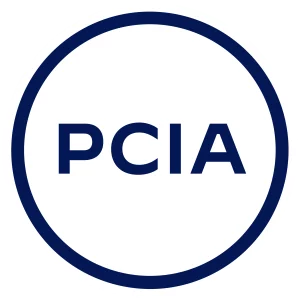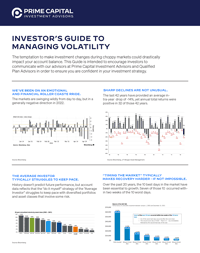Understanding what types of income you have coming in—and how taxes come into play for each one of them—is an important part of financial planning.
As one part of your financial literacy, we recommend that you thoroughly understand the implications of your sources, sometimes called buckets, of income. The goal is that as you go through your life and your own financial journey, you can find ways to build wealth by creating more income from multiple sources.
The first thing to know is that there are basically three types of income:
1) Active Income
Active income is the most common type of income, and it’s what the majority of people have. It’s the money you are paid in the form of a paycheck. Essentially, you are trading your time by going to an office or workplace every day as an employee, and in exchange, the organization or institution you work for provides you with income in the form of W2 wages.
The downside of active or ordinary income as an employee is that it has minimal tax benefits. There are basically two ways to lower your active income tax: 1) you can choose to defer income into a traditional 401(k) or 2) you can open up traditional IRAs (individual retirement accounts) on your own. (Keep in mind that IRAs are limited based on income level and amount that you can deduct and contribute). But both of these options mean you’ll have to deal with income taxes later.
The other type of active income is self-employment income—where you are still trading time, but you’re trading your own time for your own money. With some endeavors, like service businesses which bill clients by the hour, it can be difficult to build wealth with active income when you can only bill an average of 40 to 60 hours in a week. With product-based businesses, it can sometimes be easier to garner more active income for the same amount of time spent. But they still take your time and energy.There are some tax breaks for self-employed people in the tax code with certain strategies that can help lower your tax burden, and there are many more ways to save for retirement. One-on-one conversations with an advisor could help–you could make tweaks and adjustments that could put more in your pocket and less in Uncle Sam’s. Speaking to a financial advisor can make a big difference in your final outcome.
For instance, improper tax structure can hinder your overall net worth when you are self-employed. If you have an improper tax structure, you can be paying too much to Uncle Sam; be sure to get advice about that.
2) Passive Income
Passive income is income we should probably all strive for. It’s derived from assets you’ve built up that you don’t have to spend much time on. This is sometimes called “mailbox money,” where money just keeps coming in—you’ve basically traded some assets or money for an income stream that is recurring.
For instance, you might have a real estate portfolio; if you also have a real estate management company that manages repairs and other issues for you and you don’t have to spend any time on it, it’s considered passive income. (If you handle the management, there may be different tax implications—it’s important to work closely with a tax professional so that you understand the many explicit IRS tax codes related to real estate.)
Creative works or creative content can also generate passive income in the form of residuals or ads. Passive income for practical purposes can also include Social Security. But even with Social Security you will have to consider tax implications, because depending on your combined annual income calculation, you may have to pay taxes on up to 85% of your Social Security benefits! (Combined income is your adjusted gross income, plus any nontaxable interest you earned (and certain other items) and half of your Social Security income.) That is why it is so important to work with a financial advisor who focuses on retirement—before you actually retire or file for Social Security.
3) Portfolio Income
Portfolio income is similar to passive income, in that you are not putting in any time or effort to generate the returns you are accumulating. Inside the portfolio, passive portfolio income might come from dividends paid, or interest payments from bonds, or interest paid on bank accounts or CDs.
You don’t to do anything with your various forms of portfolio income, other than understand the tax implications of each investment held within it and along with your financial advisor and tax professional, take action to mitigate taxes, like tax-loss harvesting. Additionally, as you get closer to retirement, you can re-balance your portfolio, reduce risk and find ways to generate tax-advantaged income.
In fact, generating enough portfolio income is a goal that can get you to retirement, hopefully sooner rather than later. That way if you find yourself in a bad employment situation or you just don’t want to go to the office anymore because you want to take some time to enjoy the 80-degree weather, you can feel the relief of knowing you can quit anytime. You are “ready” because you can generate enough portfolio income to cover all of your living expenses and more. The feeling of independence and control over your finances can bring so much peace.
In conclusion, once you retire someday, you won’t have active income, so you’ll have to make the shift over to passive and portfolio income to generate adequate cash flow to cover all of your expenses—plus hopefully, extra to spend as we want to. It makes sense to have this goal in mind at every stage of your life! Let’s work together to create a plan to build your wealth by building your cash flow from multiple sources of income. Contact Jason Noble, CFP®, RICP® at PCIA Charleston by calling (843) 743-2926 or scheduling a time here.
Watch our 20 Minutes to Clarity podcast: https://www.youtube.com/watch?v=xKNKbzd2a3k
This information does not constitute legal or tax advice. PCIA and its associates do not provide legal or tax advice. Individuals should consult with an attorney or professional specializing in the fields of legal, tax, or accounting regarding the applicability of this information for their situations.
Advisory products and services offered by Investment Adviser Representatives through Prime Capital Investment Advisors, LLC (“PCIA”), a federally registered investment adviser. PCIA: 6201 College Blvd., Suite 150, Overland Park, KS 66211. PCIA doing business as Prime Capital Wealth Management (“PCWM”) and Qualified Plan Advisors (“QPA”). Certain services may be provided by affiliates of PCIA.
040924003 JG





